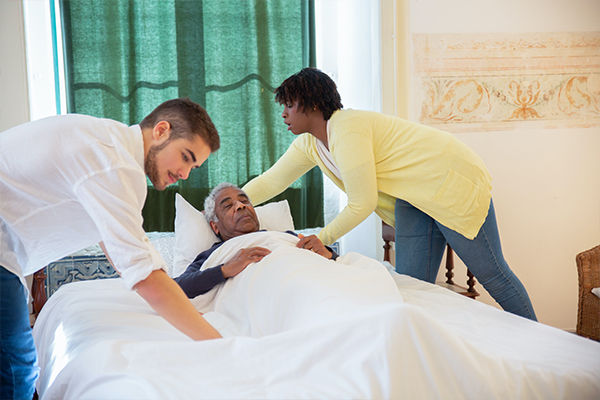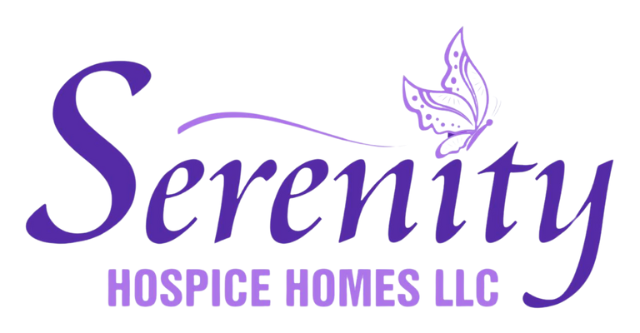Core Services Offered by Minnesota Home Hospice Providers
Every journey needs guides. When life narrows to its final path, Minnesota’s hospice teams gather around—not to lead, but to walk beside.
Hospice shines brightest through its team approach. Unlike the revolving door of specialists in traditional care, hospice wraps the patient and family in a consistent circle of experts. At the center always stands the patient and their loved ones—not merely receiving care, but helping shape it.

A : The Interdisciplinary Hospice Team
- Hospice Medical Director/Physician: Provides medical oversight, consults on care plans, and certifies patient eligibility.
- Registered Nurses (RNs) and Licensed Practical Nurses (LPNs): Assess patient needs, manage symptoms, administer medications, provide direct care, educate family members, and coordinate services. A designated RN typically coordinates the implementation of the care plan.
- Hospice Aides (Home Health Aides): Assist with personal care tasks such as bathing, dressing, hygiene, and feeding under the supervision of an RN.
- Medical Social Workers: Offer counseling, emotional support, assistance with financial and practical concerns, and connection to community resources.
- Spiritual Care Coordinators/Chaplains: Provide spiritual support consistent with the patient’s and family’s beliefs and values.
- Bereavement Counselors: Offer grief support and counseling to the family before and after the patient’s death.
- Therapists: Physical, occupational, and speech therapists may be involved to help manage symptoms, maintain function, and enhance quality of life. Some providers also offer music or massage therapy.
- Dietitians/Nutritional Counselors: Provide guidance on dietary needs and challenges.
- Volunteers: Offer companionship, respite for caregivers, assistance with errands, and emotional support. Medicare regulations mandate that hospices utilize volunteers as part of their care delivery.
B. Medical and Nursing Services
The cornerstone of hospice is expert medical and nursing care focused on comfort:
- Pain and Symptom Management: This is the primary focus, utilizing palliative care techniques to effectively manage pain, shortness of breath, nausea, anxiety, fatigue, and other symptoms causing distress.
- Nursing Care: Regular visits by hospice nurses are scheduled based on patient needs for assessment, care delivery, medication adjustments, and ongoing support. Crucially, hospice agencies provide 24-hour-a-day, 7-day-a-week on-call nursing availability for urgent needs or emergencies.
- Physician Services: The hospice medical director oversees the medical aspects of care, working in conjunction with the patient’s attending physician if the patient chooses to keep them involved.
- Medication Management: Hospice covers and manages medications necessary for palliation and management of the terminal illness and related conditions, primarily focusing on pain and symptom control.
- Medical Supplies and Equipment: Necessary durable medical equipment (e.g., hospital beds, wheelchairs, walkers, oxygen) and medical supplies (e.g., bandages, catheters) related to the hospice diagnosis are provided by the hospice agency.
C. Personal Care and Support
Assistance with daily living activities is a key component of home hospice:
- Hospice Aide Services: Trained aides provide hands-on personal care, assisting with bathing, dressing, grooming, hygiene, and sometimes feeding. They may also perform light homemaker tasks essential to maintaining a safe and clean environment for the patient, such as changing bed linens or light housekeeping in the patient’s immediate area.
- Nutritional Support: This can range from dietary counseling provided by a dietitian or nurse to assistance with feeding provided by aides.
D. Psychosocial and Spiritual Support
Addressing emotional and spiritual well-being is integral to the hospice philosophy:
- Medical Social Services: Social workers provide counseling, help navigate complex healthcare systems, connect families with community resources, assist with planning, and address emotional and social challenges.
- Spiritual Care: Chaplains or spiritual counselors offer support tailored to the patient’s and family’s spiritual or religious beliefs and needs, helping them find meaning and peace.
- Counseling: Individual and family counseling addresses the emotional impact of terminal illness, facilitates communication, helps with coping strategies, and supports end-of-life discussions.
E. Therapy Services
Therapies in hospice are focused on comfort and function:
- Physical, Occupational, and Speech Therapy: These services are provided not for rehabilitation in the traditional sense, but to help control symptoms, maintain safety, assist with activities of daily living, and preserve basic functional skills for as long as possible.
- Complementary Therapies: While core services are mandated, the availability of complementary therapies varies among Minnesota providers. Some agencies offer services like music therapy , massage therapy , or pet therapy as additional ways to enhance comfort and well-being. The presence of these specific services often reflects a provider’s unique approach or investment in additional quality-of-life programs. Families interested in these therapies should specifically inquire about their availability when selecting a provider.
F. Caregiver and Family Support
Hospice recognizes that terminal illness affects the entire family unit:
- Respite Care: To prevent caregiver burnout, hospice can arrange for short-term inpatient care for the patient, providing the primary caregiver(s) with a needed break. Medicare and Medicaid have specific limitations on the duration and frequency of respite stays.
- Patient and Caregiver Education: The hospice team educates the family on how to provide care, manage medications, understand the progression of the illness, and recognize signs and symptoms that require attention.
- Volunteer Support: Trained volunteers offer valuable companionship to patients and can provide short periods of respite for caregivers, run errands, or offer emotional support. Some providers offer specialized volunteers, such as those trained to support veterans.
- Bereavement Support: A defining feature of hospice is the provision of grief support services to the surviving family members for up to 13 months following the patient’s death. This may include counseling, support groups, mailings, and memorial events.
G. Specialized Services (Provider Dependent)
Some Minnesota hospice providers offer specialized programs catering to specific populations or needs:
- Pediatric Hospice/Palliative Care: Programs designed to meet the unique needs of children with life-limiting illnesses and their families.
- Veteran-Specific Programs: Many hospices partner with initiatives like “We Honor Veterans” to provide care that acknowledges the specific experiences and needs of military veterans.
- Interpreter Services: Agencies can arrange for interpreters for patients and families with hearing, speech, or language barriers, often at no additional cost.
The existence and depth of these specialized services can be a differentiating factor between providers. While all Medicare-certified hospices must offer the core set of services defined by regulations, the availability of these additional programs indicates potential areas of specialization or enhanced service offerings.
Have Any Questions ?
Need immediate support or have urgent questions? Call us now for compassionate guidance:
- 612 389 6993
- info@serenityhospicehomes.com








